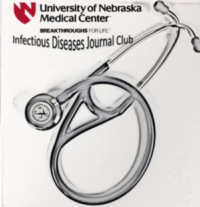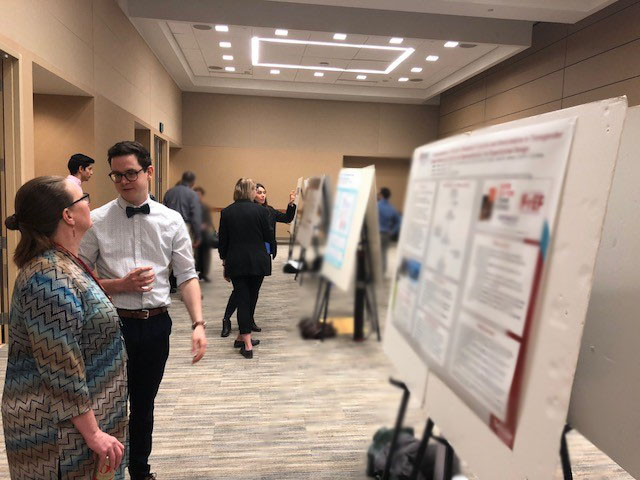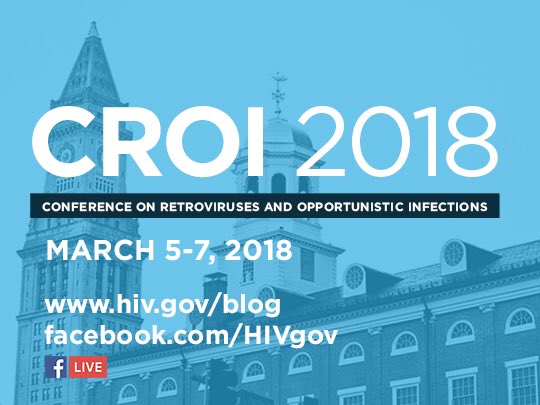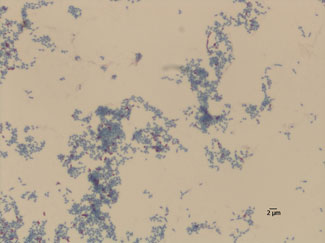Author: Jasmine Riviere Marcelin, MD
Josh Havens, PharmD on “Why I Love ID”
Why I Love ID: Infectious diseases, in general, is quite interesting, but I can really only speak from an HIV perspective. My initial career interests were not in infectious diseases and it was not until I threw myself into this niche world of HIV that I started to recognize a true affinity toward the field. […]
Mar 23, 2018

World Social Work Day – Meet our HIV Case Management Team
The official theme for Social Work Month in March 2018 is “Social Workers: Leaders. Advocates. Champions.” Social workers are the glue that keeps clinical practices together as we balance the need to care for patients with the socioeconomic needs of the individual patients. At the Specialty Care Center, our Case Management team works tirelessly to ensure that […]
Mar 20, 2018

ID Journal Club Presents… Molecular Rapid Diagnostic Tests Improve Clinical Outcome
Bloodstream infections are associated with high mortality. Blood cultures are a reliable and accurate method for the identification of bloodstream infections but can take up to 5 days or even more being finalized, leading to delays in initiation of effective antibiotic therapy. The Infectious Disease Society of America (IDSA) recommends the use of rapid diagnostic […]
Mar 19, 2018

M4 Students in our HIV Enhanced Education Track present Capstone Projects…and Today is MATCH DAY!
The UNMC College of Medicine offers a unique Enhanced Medical Education Track (EMET) program which provides an opportunity for medical students to delve into particular disciplines of interest in the field of medicine throughout their four year degree program. Track students attend seminars, preceptorships and complete a research project culminating in a poster or conference […]
Mar 16, 2018

Antimicrobial Stewardship Program Takes Patient Safety Personally
At Nebraska Medicine, our Antimicrobial Stewardship Program’s (ASP) clinical mission is to optimize the utilization of antimicrobial agents, thereby improving patient outcomes (by reducing the risk of adverse events and Clostridium difficile infection) and limiting the spread of antimicrobial resistance. These Antimicrobial Stewardship activities have been mandated by the Joint Commission and our program has […]
Mar 14, 2018

Happy International Women’s Day! Meet the Women Faculty of UNMC ID
March 8, International Women’s Day, was created as a day to recognize the women’s rights movements around the world. This year’s theme is #PressforProgress, fueled by ongoing global activism and advocacy for women’s rights in all facets of life. In an age where more women than men are enrolled in US medical schools, and 52% of […]
Mar 8, 2018

New Staff Spotlight – Danny Schroeder, PharmD
Tell us about the position you are starting: I have recently started my role at Nebraska Medicine Bellevue as an Antimicrobial Stewardship pharmacist. I reach out to physicians at Nebraska Medicine Bellevue to discuss antibiotic therapy and try to obtain the best and safest therapy for our patients here. In addition, I work with Dr. Jasmine […]
Mar 7, 2018

CROI 2018 – The Official UNMC ID Guide of Where We Will Be!
CROI 2018 is here and we want to be sure YOU know where to find us in Boston. Below is the list of faculty presentations and posters from our Division. Come visit us at CROI – We would LOVE to meet you! Find us on Twitter @UNMC_ID ; #UNMCID Content courtesy of Kim Scarsi, Sue Swindells […]
Mar 5, 2018

Stewardship-driven Ertapenem Restriction: Can Reduced Utilization Affect the Antibiogram?
In this article review we learn about the impact of a large-scale, multi-institutional Antimicrobial Stewardship Intervention on significantly reducing the overall use of ertapenem without subsequent downstream effect on carbapenem-resistant Enterobacteriaceae (CRE) non-susceptibility patterns. Delgado A, Gawrys GW, Duhon BM, Lee GC (2017). Impact of an Antimicrobial Stewardship Initiative on Ertapenem Use and Carbapenem Susceptibilities […]
Mar 1, 2018

Pharm to Exam Table – Trimethroprim/Sulfamethoxazole for Nocardiosis
Pharm to Exam Table: Clinical Pharmacology/Antibiotic Updates – Trimethroprim/Sulfamethoxazole for Nocardiosis Nocardia is an aerobic, gram-positive bacterium commonly found in soil, decomposing vegetation, fresh water, and salt water. Nocardia is typically considered an opportunistic pathogen, but there have been several cases of nocardiosis occurring in immunocompetent hosts. Patients that are most at risk of developing nocardiosis are those with […]
Feb 26, 2018

Recent Posts
- Conference on Retroviruses and Opportunistic Infections (CROI) 2026: Where to find our UNMC ID experts
- New Faculty Spotlight: Dr. Mohanad Al-Obaidi
- Pharmacists in Infectious Diseases: Expertise, Partnership, Impact
- Fast, Accurate, and Practical: Rapid AST for Gram-Negative Bacteremia
- 2025 Reflections From ID Chief – Dr. Warren
Archives
- February 2026
- January 2026
- December 2025
- November 2025
- October 2025
- August 2025
- July 2025
- May 2025
- April 2025
- March 2025
- February 2025
- January 2025
- December 2024
- November 2024
- October 2024
- September 2024
- August 2024
- July 2024
- June 2024
- May 2024
- April 2024
- March 2024
- February 2024
- January 2024
- December 2023
- November 2023
- October 2023
- September 2023
- August 2023
- July 2023
- June 2023
- May 2023
- April 2023
- March 2023
- February 2023
- January 2023
- December 2022
- November 2022
- October 2022
- September 2022
- August 2022
- July 2022
- June 2022
- May 2022
- April 2022
- March 2022
- February 2022
- January 2022
- December 2021
- November 2021
- October 2021
- September 2021
- August 2021
- July 2021
- June 2021
- May 2021
- April 2021
- March 2021
- January 2021
- December 2020
- October 2020
- September 2020
- August 2020
- July 2020
- June 2020
- May 2020
- April 2020
- March 2020
- February 2020
- January 2020
- December 2019
- November 2019
- October 2019
- September 2019
- August 2019
- July 2019
- June 2019
- May 2019
- April 2019
- March 2019
- February 2019
- January 2019
- December 2018
- November 2018
- October 2018
- September 2018
- August 2018
- July 2018
- June 2018
- May 2018
- April 2018
- March 2018
- February 2018
- January 2018
- December 2017
- November 2017
- October 2017
- September 2017
- August 2017
- July 2017
- June 2017
- May 2017
- April 2017
- March 2017
- February 2017
Categories
- Antibiotic Awareness Week
- Antimicrobial Stewardship
- Bench to Bedside
- Conferences and Presentations
- COVID-19
- Faculty and Staff
- Faculty Recruitment
- Fun With ID
- Guest blog posts
- HIV
- HIV/AIDS
- ICAP
- ID Grand Rounds Speakers
- ID History
- ID Pharmacy
- IDIG
- IDSA
- IDWeek
- In the News
- Infection Prevention and Control
- Journal Club
- Medical Education
- Micro
- Microbe Monday
- NBU
- Nebraska ASAP
- Nebraska ID Society
- Nebraska Medicine ASP
- Oncology ID
- Ortho ID
- Pediatric ID
- PharmToExamTable
- Publication Alert
- Research
- Transplant ID
- Uncategorized
- UNMC ASP
- UNMC Enhanced Medical Education Track
- UNMC ID Achievements
- UNMC ID Fellowship
- UNMC SCC
- UNMCID GIVES BACK
- Weekly Corona
- Why I Love ID
Recent Comments